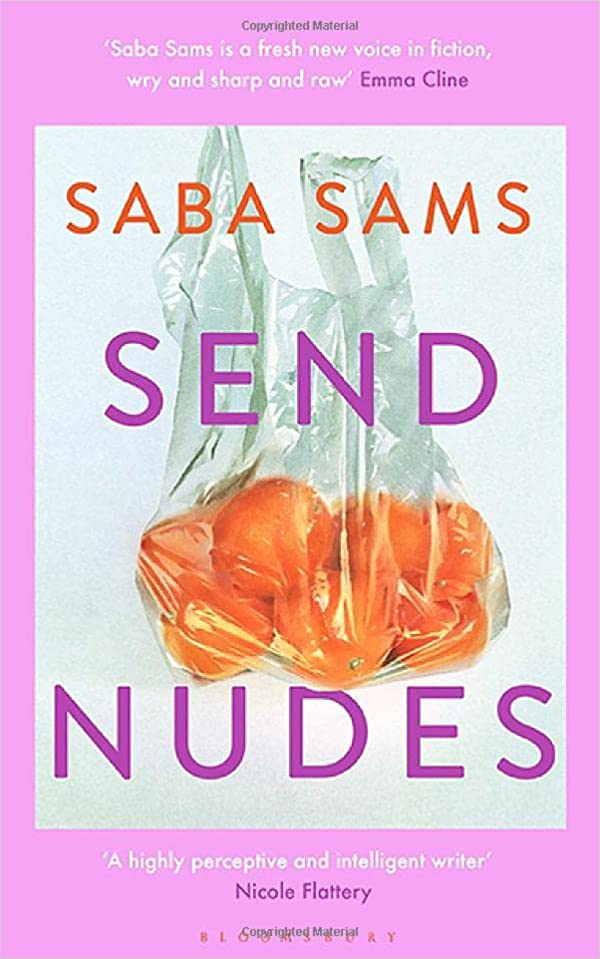Send Nudes by Saba Sams review – “10 short stories that are brilliantly crafted and subtle in their delivery.”

‘So she left, walked home through the park, with an image in her head that wouldn’t shift: her body as a nut cracked open.’ This is one of a hundred stunning lines from 25-year-old author Saba Sams’ debut novel, Send Nudes, a collection of 10 short stories that are hard to put down, brilliantly crafted and subtle in their delivery.
Send Nudes chronicles the lives of several Generation Z women who have just come of age and explores their reactions to the absurd situations they find themselves in. These situations come about within the patriarchal society they live in, such as in Here Alone where Emily finds herself being used to make her date’s ex-girlfriend jealous. She is ignored and left discarded like a plastic wrapper, finally finding comfort through food, a pleasure she indulges in with hesitation.
It is not only patriarchy that Sams pays attention to, but also the ills of capitalism and its resulting inequality. In Today’s Square a working-class girl is promised a holiday by her mother, but the onslaught of COVID and financial difficulties render this impossible. These characters go from point A to B rather easily and their actions show a resigned acceptance, but a whole load of internal monologue complicates things.
Sams is interested in how modern technology – smartphones, social media, selfies – distorts women’s perception of themselves. See the title story, Send Nudes, where the protagonist struggles with her appearance, or Tinderloin, in which a Tinder match has disastrous consequences. Her characters don’t fit into the standards expected of young women and they suffer as a result. They are rebellious without meaning to be, and different without wanting to be. An important message from the collection is that only very few women fit into these standards of beauty and behaviour, and the toxicity and self-hate from this is inherently damaging.

The best story in the collection, by a mile, is Overnight, a truly harrowing depiction of sexual assault, told through flashbacks at a rave. The relatability of the settings – a rave, a party, and school uniform shopping – make it all the more horrifying. The fine-drawn nuances of this type of scarring situation are so confidently rendered and stay with you for days.
Altogether, these socially relevant themes, combined with deadpan dialogue and a fluid prose style give the collection a visceral energy. It is the kind of book that people will fangirl over, and rightly so.
In Britain, Sams is part of a generation in which the female artist has taken on a renewed importance. Last year we saw the release of critically acclaimed albums from female musicians: Arlo Parks, Joy Crookes and PinkPantheress to name a few. In literature also, we are seeing a similar situation, where the poster girl is Sally Rooney.
Sams’ style of writing is almost identical to Rooney’s. In this area, Saba Sams has brought nothing new to the table. But innovation in prose style is not what she is after; it is content in which she has made remarkable strides. She has significantly widened the picture from Rooney’s obsession with bourgeois romance troubles and middle-class professionals moaning of how awful life is whilst professing themselves to be avid Marxists…
Stories should reveal something to the reader by taking them into the depths of a character’s inner life, a place which said reader cannot access otherwise. Sams does this down to a T. Her stories are rich in narrative and reach peaks that warrant further exploration. Her short stories leave the reader pondering over their conclusions.
But the peaks also show something else: that many of the stories have the potential to grow into novels. Sally Rooney’s Normal People began life as a short story. Saba Sams should realise this and soon release a novel – a form in which I expect she will fare greatly.
